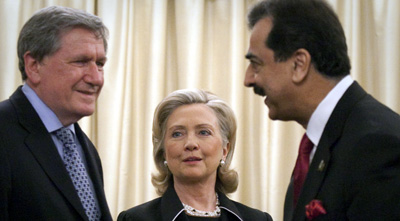
Lugar: Umar Cheema case a ‘bellwether’ for Pakistan
Sen. Richard Lugar, ranking member of the U.S. Senate Committee on Foreign Relations, wrote to Pakistani Prime Minster Yousuf Raza Gilani on September 22 to express concern about the brutal attack on Umar Cheema. The journalist was abducted on the weekend of September 4-5 by men in black commando-style uniforms, who beat and humiliated him. It’s…
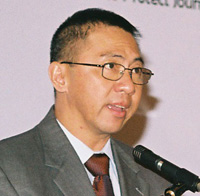
Remembering Philippine prosecutor Leo Dacera
Leo Dacera, a senior state prosecutor and head of the witness protection program for the Philippine Department of Justice, died suddenly on November 4. Initial news reports said Dacera, 54, left, was the victim of an apparent heart attack. Dacera’s untimely death is a tremendous blow to all those seeking to end the culture of…
Internet Blotter
Turkey lifted its ban on YouTube and then re-asserted it within the same week. Digital technology is helping get news out of North Korea. Small digital cameras and tiny SD memory cards make it easier to smuggle images out. In China, meanwhile, Amazon’s Kindle 3G e-reader is reportedly being used to get the news in.…
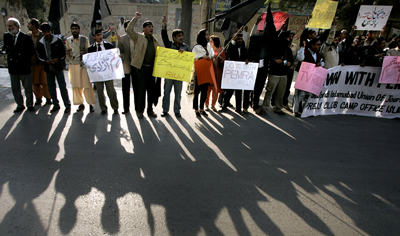
Remembering Pakistan’s bad old days of November 2007
November 3, 2007, was a dark day in the history of Pakistan’s media. Former military dictator General Pervez Musharraf banned all private news channels, and some entertainment and sports channels, through an “oral order.” He said he made the move to stop “irresponsible journalism.” Many of the staff in the president’s office who dealt with…
Online freedom of expression in Latin America
On his blog, El Oso, David Sasaki has just finished up the third and last part in his series, “Internet Censorship and Freedom of Expression in Latin America.” It’s a brilliant overview of current political and social pressures on free speech and online reporting in the region. Some key observations: Direct governmental censorship in Latin…
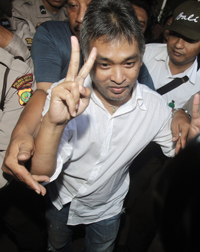
Playboy Indonesia editor speaks out from jail
Although I refuse to say that I am guilty for violating criminal law for publishing Indonesia Playboy magazine, it never crossed my mind to run away or to try to avoid the two-year prison sentence handed down to me by the Supreme Court. I am a good citizen who respects the law in Indonesia.On Saturday,…
Uganda lifts ban on CBS, staff celebrates with caution
Full, normal broadcasting of the Ugandan Central Broadcasting Service (CBS)–owned by Uganda’s powerful traditional Buganda kingdom–resumed Monday after nearly 14 months of silence. While CBS staff welcomed their return to work, many recounted a tough year and questioned the nature of the station’s re-opening.
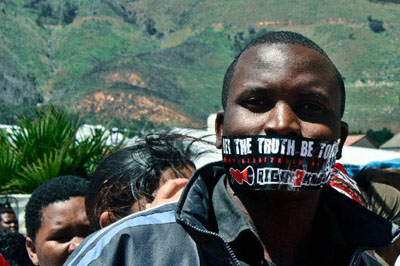
South Africans end week of “secrecy bill” protests
On Wednesday, just before South African lawmakers were scheduled to debate amendments to the controversial Protection of Information Bill, thousands of protesters marched to the gates of Parliament in Cape Town to oppose the measure, which they called an “apartheid-style secrecy bill.” The marchers represented a broad coalition of media, academia, trade unions and civil…
